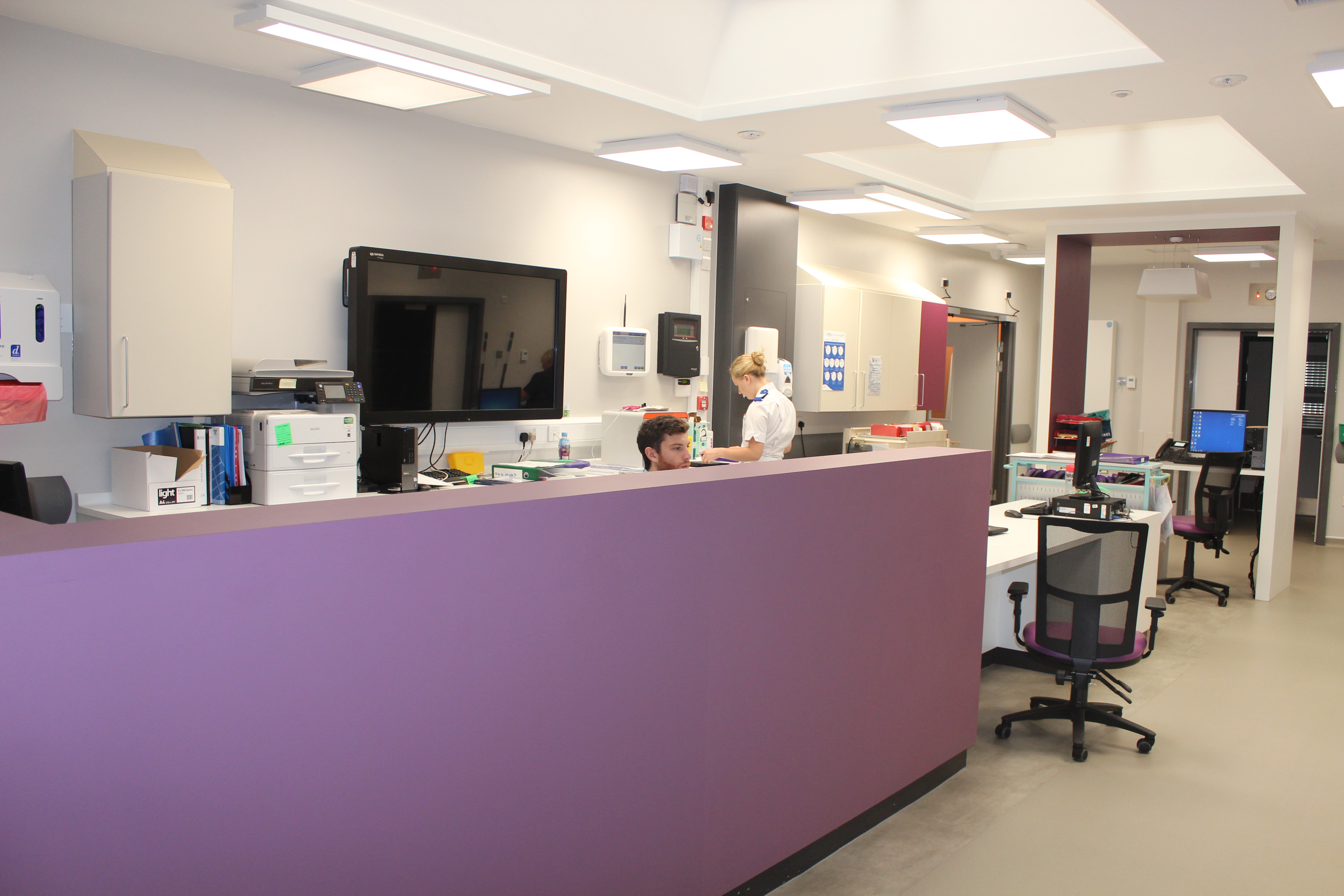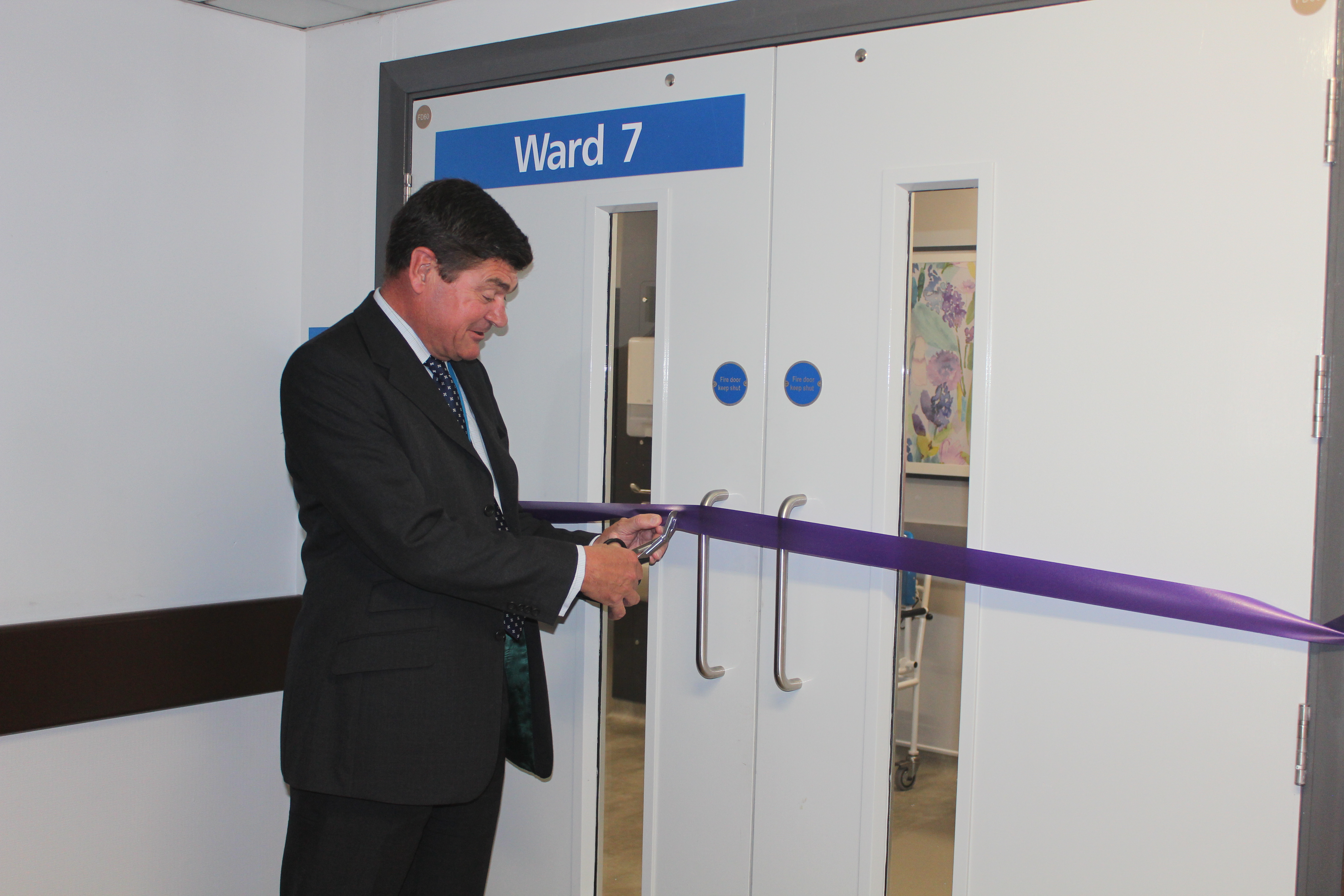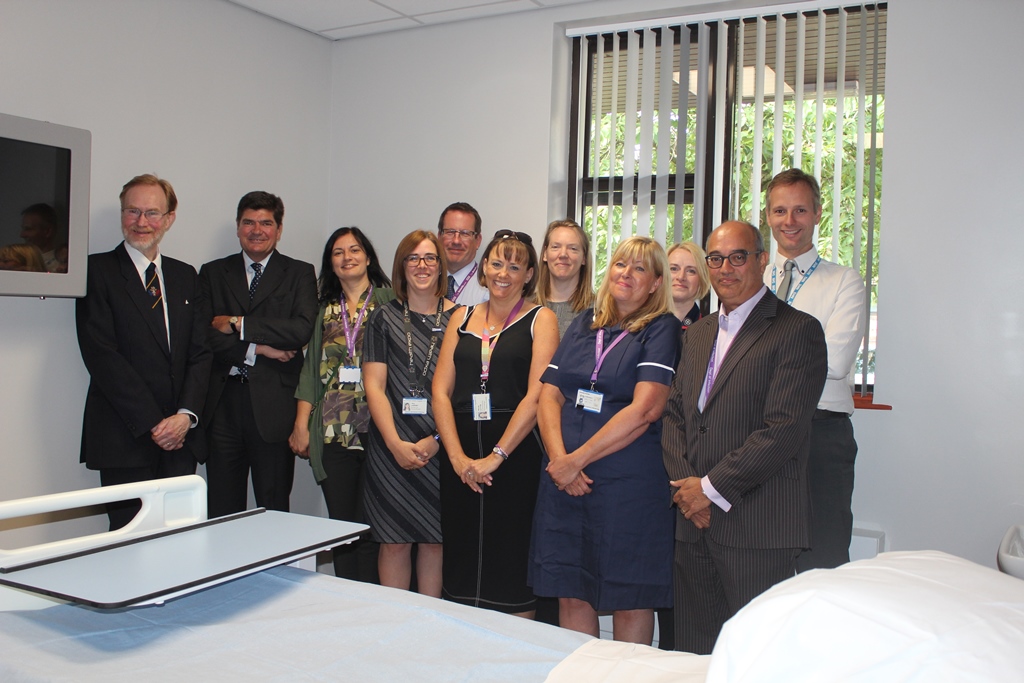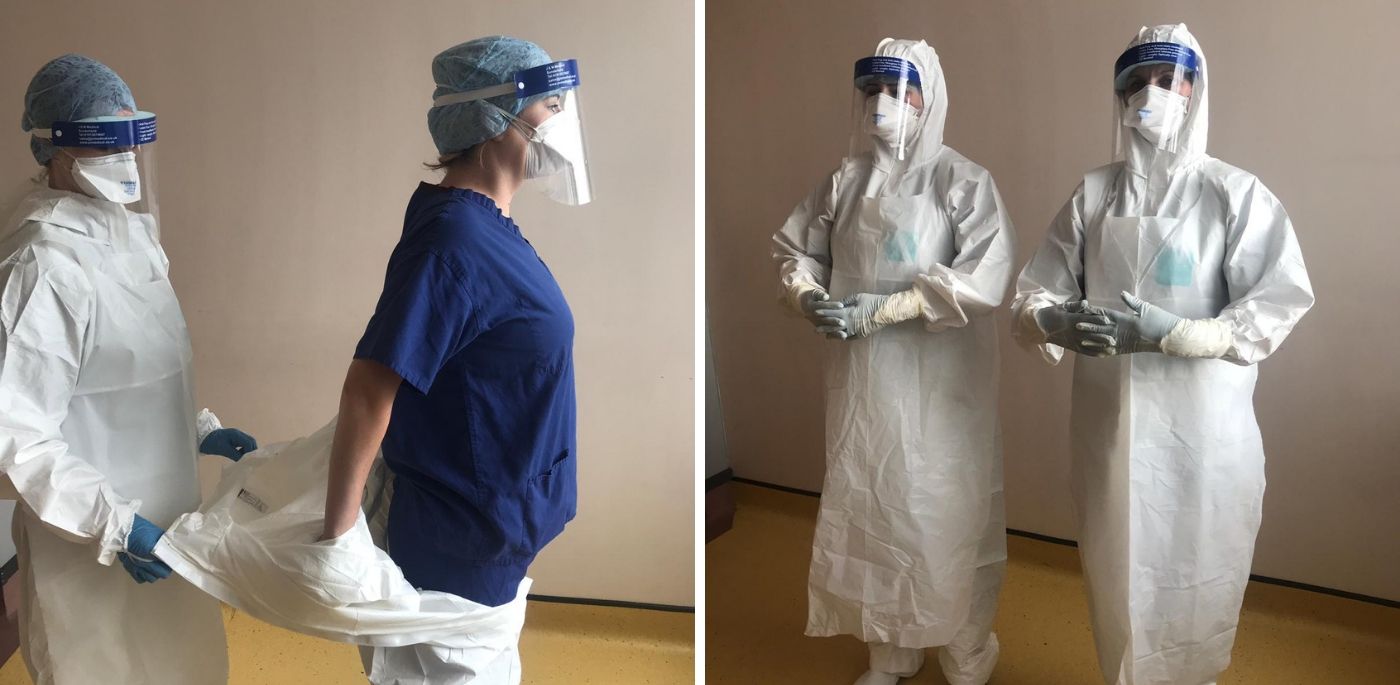Staff in the new infectious diseases ward at Castle Hill Hospital have been undergoing training to protect themselves from highly infectious diseases including Ebola.
Hull University Teaching Hospitals NHS Trust has trained 15 nurses and health care professionals on Ward 7 to help patients with suspected haemorrhagic illnesses such as Ebola, dengue fever and yellow fever.
Matthew Shipley joined the trust as Senior Infection Prevention and Control Nurse six months ago after working for the British Army, training defence forces in Sierra Leone to deal with suspected cases of Ebola during the height of the outbreak in 2015.

Ward 7 opened last year
Over the past few weeks, Matthew has been training staff on Ward 7 on how to “don” and “doff” – put on and take off – specialist protective gear to ensure they are not at risk of contracting any infectious illness from patients.
He said: “We have yet to see a case of Ebola or any other haemorrhagic illness and it is highly unlikely that we ever will. However, we have to ensure we know how to respond if anyone comes into hospital with signs.
“These are highly infectious illnesses and it is crucial our staff are aware of the correct procedures for using personal protective equipment (PPE) so they can keep themselves safe while continuing to provide an excellent standard of care.”
More than 1,676 have died in the most recent outbreak of Ebola following the epidemic between 2014 and 2016 which claimed the lives of more than 11,300 people.
More than 111,000 people, many of them relatives or health professionals who cared for people with Ebola, have received the rVSV-ZEBOV vaccine in an attempt to halt the spread of the epidemic.

Chief Executive Chris Long cutting the ribbon to open the new ward
Hull is one of the UK’s designated centres for treating patients with multi-drug resistant tuberculosis (TB) and for the assessment of possible haemorrhagic illnesses.
Ward 7 opened last year with 12 specialist rooms treating patients with these highly contagious viruses and drug-resistant infections.
Five rooms are “negative pressure” isolation facilities with lobbies and en-suite showers, including one designed to care for vulnerable adults. Special ventilation systems prevent contaminated air escaping to other parts of the ward.
One of the rooms has been designed to treat patients with Ebola or similar conditions who are awaiting transfer to specialist treatment centres in London or Newcastle.
The first room of its kind in the Humber region, the high-level isolation room has a dirty/clean route where staff are able to take personal protection equipment on and off.

Some of the staff working on the Infectious Diseases ward with Chief Executive Chris Long (second from left) and Duncan Taylor, Director of Estates, Facilities and Development (fifth from left)
Although no patients have yet been diagnosed with Ebola since the unit opened, one patient was suspected of having the illness when they developed a fever after travelling in an area affected by the outbreak.
They were cared for in the specialist room while awaiting transfer to one of the specialist centres before further tests showed they had malaria rather than Ebola.

